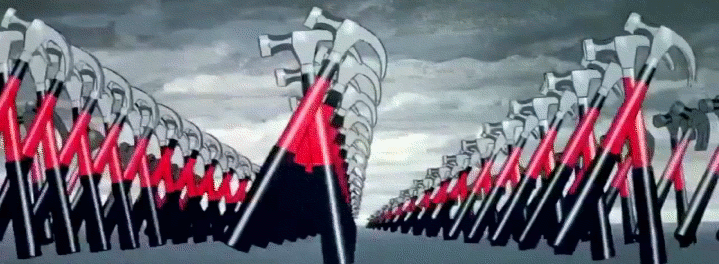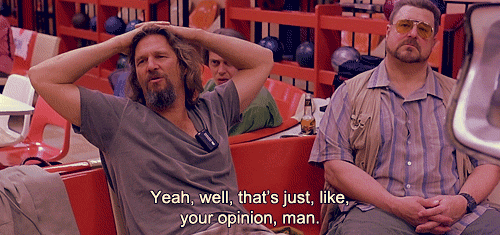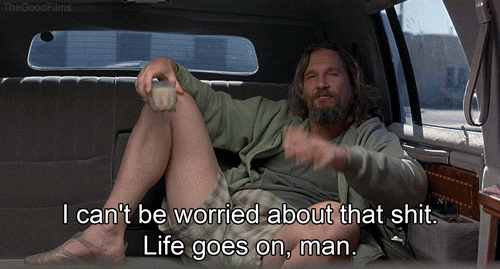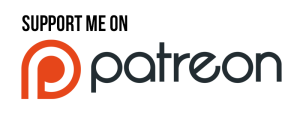Patreon Pick: Dealing with Haters
It’s a sad truth that if you’re conducting business online, you will run into… let’s just say disagreeable sorts. Part of managing an online community is learning how to deal with negativity. In short, learning how to deal with haters. Because as we all know, haters ARE gonna hate. Being unprepared for the inevitability is a fast track to failure.
So how do you deal with all that hate? Check out this set of 5 tips to get you started!
Note: For the purposes of this article I’m talking about your average grumpy community member, not aggressive, personalized attacks. If you’re dealing with personal attacks, please seek additional assistance!
#1: It’s Not Really About You
Easier said than done, but remember that in most instances the hate isn’t really about you as a person. The majority of the time the community member is angry about something else, and is just taking it out on you. Not exactly fair, but a pretty common part of being human. When we’re angry, we’re not the most rational creatures.
Someone had a bad day and just wanted to unwind with your game only to find the server was down? HOW DARE YOU.
User didn’t read the dialog and accidentally deleted their favorite item? YOU BETTER FIX THIS YOU !@##$@ JERK!
Someone wrote you a support ticket outside of work hours and you didn’t response within 15 minutes? BURNING DOWN EVERYTHING!
None of those are about you. The community member might direct it at you, and they might blame you for their current situation, but at the end of the day their problem is really to do with a bad experience. The quickest way to resolve the issue is to #1 apologize, and #2 help fix that bad experience. If you’re able to focus on the core of their issue and not their misplaced anger at you, you’re already ahead of the game.
On the plus side, if you’re able to help resolve their bad experience, you can often turn a negative community member into one of your best advocates. Don’t take it personally, try to help as best you can, and most people will calm down. In some cases you might even get an apology for previous behavior!
#2: Walk It Off
I mean this literally: Get up, go for a stroll, and get the hell away from your keyboard.
If at any point you find yourself emotionally caught up in the hate, remove yourself from the situation. Full stop. You should never respond to a customer or community member when you’re feeling emotionally charged.
Every community manager I know has had moments in which they’ve lost their temper, been pushed over the edge, or otherwise been emotionally compromised by something that a community member has said to them. Certain community members thrive on finding your limits and trying to push you over the edge. And they will find that edge, given enough time. I know I’ve certainly had my share of moments in which something like this has entered my mind:
Not exactly the best mental state in which to draft a response, right? Well, not if you want to keep your job, at any rate…
Don’t let yourself be tempted. Learn to recognize when you’ve been pushed over the edge, get up, and remove yourself from the situation. Go for a walk, play a game, have a snack, and generally give yourself the space to calm the hell down.
Once you’ve returned to a chill state? Draft your response in Word or another text editor. Review what you’ve written from an objective standpoint. Is it strictly business? If not, find another way to write it. From there, get another person to take a look at it and ensure it’s free from personal bias or frustrations. Only post it once you’re confident that it’s going to add to the conversation without making things worse.
#3: Plan For It
Just to be clear: You WILL be dealing with haters.
It may not be today, and if you’re fortunate it may not be for quite a while. Smaller communities tend to be a bit better behaved, and depending on who your audience is the level of hate you receive will vary. Game communities tend to run really passionate in both directions, whereas video editors are pretty much the chillest, nicest people in existence. (or maybe that’s just the Wipster community)
Regardless of who your audience is, you’ll want to plan for the worst. With luck, you’ll never have to deal with anything too harsh. However, having a clear plan in place in case you do? Golden!
Planning ahead gives you a clear strategy for dealing with problems as they arise. This means you’re prepared, and not caught off guard. This can be critical, as the added stress of an unknown situation means emotions tend to spike and can make responding even more difficult. Have a plan already in place? Review, adapt, and respond as necessary.
This is by no means an exhaustive list, but here are a few examples of the sort of comments you’ll want to have a plan for:
- “Why did you ban me? I was just kidding!!!”
- “The goddamn server is down AGAIN. Are you ever trying?!?”
- “Anyone here know how to get through to support? They NEVER answer emails”
- “WTF?!? This thing just stole my money!”
- “After that last experience, fuck you guys. I’m done with this company”
- “Wow, that was racist/sexist/etc. Is that the sort of thing your company supports?”
- “Did you steal that idea from _competitor_? Not cool”
- “Hey, maybe you should stop posting on Twitter and WORK ON THE GAME!!!” (a personal fave)
- “_other user_ is a fucking faggot!”
- “You lied to me”
- “I’m going to kill myself”
…and many more o’ so delightful comments! You don’t have to have a macro response planned, but knowing what approach you’ll take to certain types of issues is critical. This allows you to not only be prepared, but also be fair in the way you handle responses. If community members notice that you allow one member to call other users a bad name regularly, but crack down on others with vengeance, that sends a bad message. Having clear guidelines can go a long way to providing a solid foundation for managing critical conversations.
And as part of this, remember that you cannot please everyone. Be prepared to lose community members when necessary. If a community member is contributing nothing but vitriol, it may be time to cut your losses. Know where that line is, and be prepared to take action against it when need be.
#4: Have Clear Rules (and follow through!)
As a critical part of the above, you should absolutely have a clear set of rules for participation. Ideally this is one master Terms of Use file that lives somewhere on your site, and which applies to all of your community channels. This allows you to quickly point members to one central location, and removes the chance that your company’s rules vary by channel.
Your rules will vary based on your company, but they all tend to follow a fairly basic setup. No personal attacks, no impersonation, nothing illegal, etc. Take a look at what’s out there, adapt for your needs, and make sure you have a lawyer give it a yea/nay if you’re able.
One of my favorite examples is Tumblr. Tumblr’s Community Guidelines is fantastic mix of factual and funny. (search for Benedict Cumberbatch). It’s easy to understand and entertaining enough that I’ve read the entire thing at least once.
And when community members break the rules?
Not everything is a ban-worthy offense, but make sure you’re consistently and fairly applying bans when they’re needed. If you’re not following through on your rules, they may as well not exist. Your community isn’t stupid, and if they see you failing to punish those that cross the lines, you’ll quickly lose their support.
As I’ve said before: If you don’t actively manage your community, the worst of your users will devour the best.
Banning people sucks, but learn when it’s needed and throw that hammer down! You’re not just dealing with a single bad community member, you’re setting the tone for what’s acceptable behavior. Make sure you’re looking out for your community, and actively managing out toxic behavior.
#5: Channel ‘The Dude’
Outside of peeing on his rug, there’s not much you can do that will phase The Dude. And by The Dude, I’m talking about Lebowski, patron saint of Community Managers. Learn to channel The Dude, and to live by his motto:
Everyone is going to have an opinion. You don’t have to agree with them all, and you certainly don’t have to take them all to heart. Try not to let it get to you too much. Graciously accept feedback (especially if it’s constructive), try to help where you can, and remember that at the end of the day there’s only so much you can do. Not every single person on the internet is going to love you and your work, but remember:
In Closing
Learning how to deal with frustrating scenarios is a core function of a great community manager. No one has all of the answers, and we all lose our cool at times. Give yourself time, learn from others, and remember to take a step back when it gets to be a bit too much.
And of course, always remember to take time to celebrate your successes:
Shameless Shilling
I rely on the support of fantastic folks like you!
Dig my writing and want to see more? Support me on Patreon!
Questions? Comments? Want to chill out and enjoy a White Russian? Drop me a line in the comments or @boopsocial!
Bonus: I’ll be doing a Blab.IM chat on this topic in early February! Join us for #BoopChat: Dealing with Haters, Community Manager Style















Jared says:
Great info! Hope to catch the Blab.IM chat.